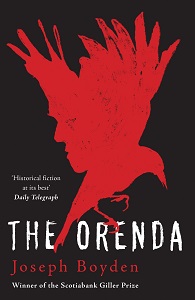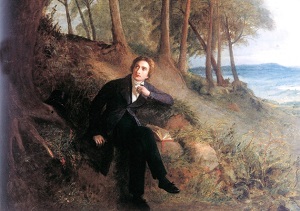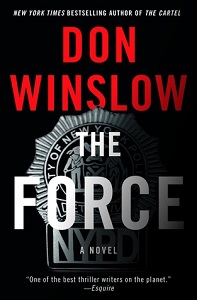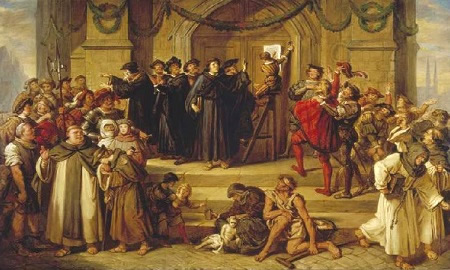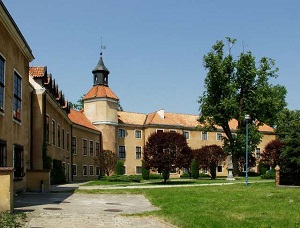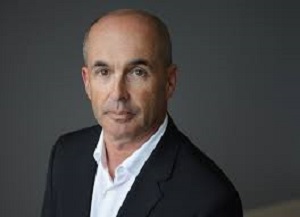Bij Halloween
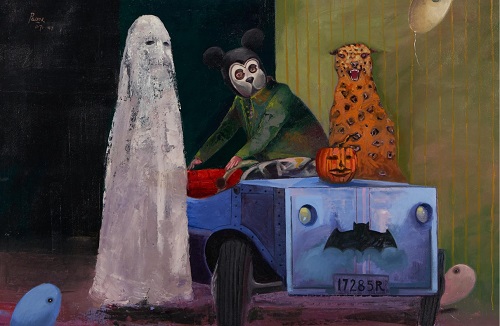
The House of Ghosts
The House of Ghosts was bright within,
Aglow and warm and gay,
A place my own once loved me in,
That is not there by day:
My hound lay drowsing on the floor:
From sunken graves returned
My folk that I was lonely for
Sat where the hearth-fire burned.
There was no lightest echo lost
When I undid the door,
There was no shadow where I crossed
The well-remembered floor.
I bent to whisper to my hound
(So long he had been dead!)
He slept no lighter nor more sound,
He did not lift his head.
I brushed my father as I came;
He did not move or see—
I cried upon my mother’s name;
She did not look at me.
Their faces in the firelight bent,
They smiled in speaking slow
Of some old gracious merriment
Forgotten years ago.
I was so changed since they had died!
How could they know or guess
A voice that plead for love, and cried
Of grief and loneliness?
Out from the House of Ghosts I fled
Lest I should turn and see
The child I had been lift her head
And stare aghast at me!

Fonthill Castle in Doylestown, de geboorteplaats van Margaret Widdemer
De Amerikaanse schrijver Don Winslow werd geboren in New York op 31 oktober 1953. Zie ook alle tags voor Don Winslow op dit blog.
Uit: Stad in brand (Vertaald door Catherine Smit)
“Danny Ryan ziet de vrouw het water uit komen. Is ze echt of ziet hij een flard uit een zoete droom over de zee? Ze is echt en ze gaat voor onrust zorgen. Vrouwen van dit kaliber brengen nu eenmaal onrust met zich mee. Dat weet Danny; het is alleen de vraag hoeveel. Als hij het wist… als hij wist waartoe haar komst zou leiden, was hij misschien wel de zee in gegaan en had hij haar onder water gehouden tot ze niet meer spartelde. Maar hij weet het niet Daarom blijft Danny op het strand zitten met de zon op zijn kop, voor Pasco”s strandhuis, en neemt haar vanachter zijn zonnebril uitgebreid op zonder dat iemand er iets van merkt Blond haar, diepblauwe ogen en een zwarte bikini die haar rondingen eerder accentueert dan verhult. Haar buik is strak en glad, haar benen lang en gespierd. Zo’n vrouw heeft over vijftien jaar nog steeds geen brede heupen of een dikke kont Want zo’n vrouw eet geen aardappels of zondags braadstuk met jus. De vrouw komt het water uit. Haar natte, zilte huid glinstert in de zon. Terri Ryan prikt haar elleboog in de ribben van haar man. “Wat nou?” vraagt Danny, gespeeld onschuldig. “Ik zie het heus wel. Je geeft je ogen goed de kost,” zegt Terri. Dat geldt voor iedereen, trouwens – voor hem, Pat en Jimmy, en zelfs de vrouwen – Sheila, Angie en Terri. “Ik snap het wel, hoor,” zegt Terri. “Wat een jetsers.” “Leuke woordkeus,” zegt Danny. “Had jij een ander woord in gedachten dan?” vraagt Terri.
“Ik dacht helemaal niks.” “Noem dat maar niks,” zegt Terri, haar rechterhand op en neer bewegend. “Met zo’n voorgevel zou ik ook een bikini aantrekken.” Terri draagt een zwart badpak. Danny vindt dat het haar goed staat. “Ik heb alleen oog voor jóuw tieten,” zegt Danny. “Dat horen wij graag.” Danny volgt de vrouw met zijn blik. Ze pakt een handdoek van het strand en droogt zich af. Die brengt heel wat uurtjes in de sportschool door, denkt Danny. Ze zorgt goed voor zichzelf. Wedden dat ze in de sales werkt? Maar dan wel in het duurdere segment – luxewagens, vastgoed of anders bij een zakenbank. Er is niet één kerel die nee zegt tegen zo’n vrouw of die probeert af te dingen. Tegenover zo’n stoot wil je toch niet krenterig overkomen? De vrouw loopt weg en Danny kijkt haar na. Sommige dromen zijn zo mooi dat je hoopt dat ze nooit voorbijgaan. Niet dat hij vannacht trouwens veel geslapen heeft. Hij is bekaf, ze hebben een vrachtwagen met Armani-pakken leeggeroofd – hij en Pat en Jimmy MacNeese. Helemaal aan de westkant van Massachusetts. Een makkie – een klusje dat Peter Moretti hun had toegeschoven. De chauffeur wist ervan, en doordat iedereen deed wat-ie moest doen raakte er niemand gewond. Maar het was wel een takke-eind rijden; toen ze eindelijk de kust weer bereikten, kwam de zon al op. Terri strekt zich weer uit op haar badlaken. `Nu ben je zeker weer niet te houden.” Haar man houdt van haar, dat weet Terri. Danny Ryan is zo’n trouwe ziel, die zou niet eens vreemd Winnen gaan. Ze vindt het best als hij naar andere vrouwen kijkt, zolang hij maar bij haar in bed belandt. Veel getrouwde mannen hebben zo nu en dan behoefte aan een slippertje, maar Danny is anders.”
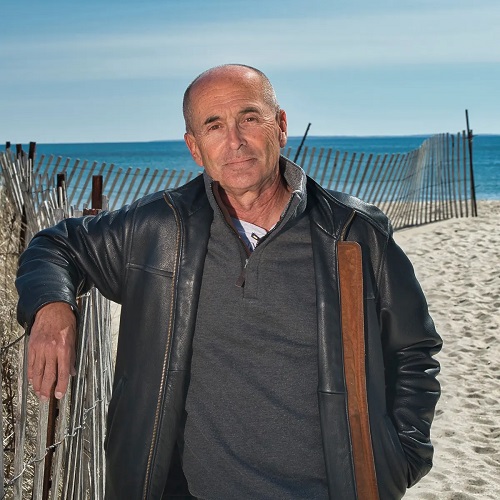
De Engelse dichter John Keats werd geboren op 31 oktober 1795 in Finsbury Pavement in Londen. Zie ook alle tags voor John Keats op dit blog.
Ode aan de herfst
Seizoen van mist en malse overvloed!
Naaste hartsvriend van de rijpende zon,
Samen smoezend hoe je de wijnrank zoet
En zwaar langs rieten daken leiden kan,
Hoe de bemoste appeltak kan buigen,
En alle fruit kan geuren en kan gloeien,
De kalebas kan zwellen, hazelnoten kraken
Met puike kern, knoppen weer gaan groeien,
Steeds opnieuw, en bijen verse bloemen krijgen,
Totdat ze denken dat ze eeuwig kunnen zuigen,
De zomer zal hun kleverige raat bewaken.
Wie zou jou niet herkennen in die weelde?
En wie jou elders zocht, zag dat je goedgezind,
En rustig in de voorraadschuur verwijlde,
De haren wiegend in de dorsvloerwind,
Of dat je heerlijk sliep in half gemaaide voren,
Bedwelmd door klaproosgeuren, terwijl jouw zeis
De slag liet lopen met de bloemen en het koren;
En soms, net als wie aren leest, ben je in een staat
Van diepe ernst, als je uit een beek oprijst,
Of als je, bij de ciderpers, met kalm gelaat,
Het uitknijpen beziet, dat alsmaar verdergaat.
Waar zijn de lenteliederen. Waar zijn ze? Ach,
Vergeet ze maar, jij hebt je eigen lied, –
Een lage lucht bloost op de kwijnende dag
En dekt het stoppelveld met rozig coloriet;
Daar is de treurzang van het muggenkoor
Tussen de waterwilgen, hoger, alsmaar door,
Of dalend, als de wind weer komt of gaat,
En zie het forse lam dat bij het kreekje blaat,
De krekels zingend in de haag – nu komt het uur
Dat de roodborst in de tuin zijn triller horen laat;
en daar de zwaluwen, kwetterend in “t azuur.
Vertaald door Arie Sonneveld
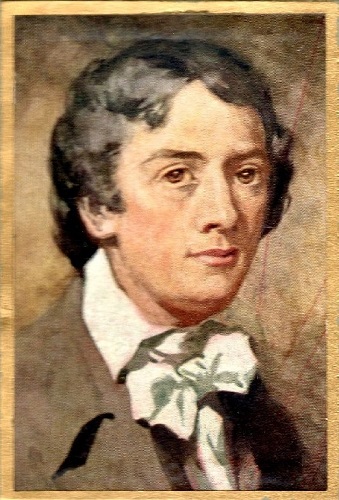
Portret van John Keats door William James Neatby, 1909
Zie voor nog meer gedichten over Halloween ook alle tags voor Halloween op dit blog.
Zie voor de schrijvers van de 31e oktober ook mijn blog van 31 oktober 2018 deel 1 en eveneens deel 2.


